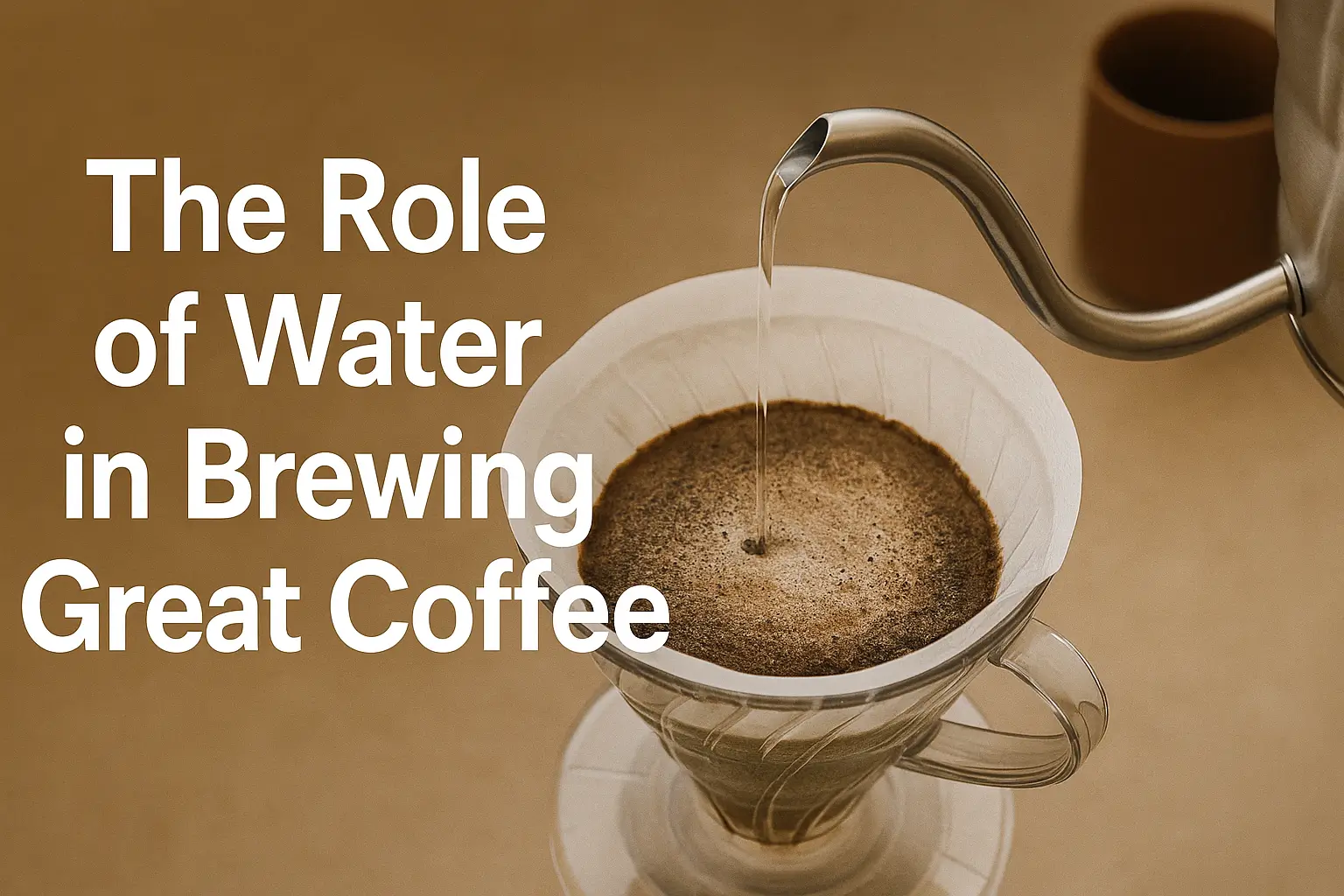You might spend a lot of time selecting the right beans, grinder, or brewing method — but did you know that water makes up over 98% of a cup of coffee? If the water you use isn’t right, even the best beans will fall short.
In this article, we’ll explore how water affects coffee flavor, what kind of water to use, and how to optimize your brewing for the perfect cup.
Why Water Matters
Water isn’t just a neutral ingredient — it acts as a solvent, extracting soluble compounds from coffee grounds. These include:
- Acids (for brightness)
- Sugars (for sweetness)
- Oils and aromatics (for body and aroma)
- Bitter compounds (if over-extracted)
If your water is too soft, too hard, or contains certain chemicals, it can ruin balance, flatten flavors, or even damage your equipment.
Tap Water, Filtered Water, or Bottled Water?
Tap Water
- Pros: Convenient, cheap
- Cons: Can contain chlorine, minerals, or contaminants that alter flavor
If your tap water tastes good on its own, it might work. But if it smells like chlorine, metal, or earth — avoid it.
Filtered Water
- Best option for most people
- Removes chlorine, some minerals, and impurities
- Helps preserve coffee flavor and protect brewing gear
Use carbon filters (e.g. Brita) or install an under-sink filtration system.
Bottled Water
- Can be hit or miss
- Avoid distilled water (no minerals = flat coffee)
- Look for bottled spring water with balanced mineral content
Some roasters even specify recommended bottled water brands for their beans.
The Ideal Water Profile for Coffee
According to the Specialty Coffee Association (SCA), these are the recommended water parameters for brewing:
- Total dissolved solids (TDS): 75–250 ppm (ideal: 150 ppm)
- Calcium hardness: 40–75 ppm
- Alkalinity: 40 ppm
- pH level: 6.5–7.5
- Chlorine: 0 ppm
You don’t need to memorize all of this — just know that balanced mineral content is key.
What Happens If Water Is Too Hard or Too Soft?
Hard Water (High in calcium/magnesium)
- Over-extracts bitter compounds
- Can cause scale buildup in kettles and espresso machines
- Mutes delicate flavors
Soft Water (Low in minerals)
- Under-extracts flavor
- Results in flat, weak coffee
Balance is crucial. You want water with enough minerals to extract flavor, but not so many that they distort it.
Quick Home Test
Taste your tap water:
- Is it crisp, clean, and neutral? Good sign.
- Does it taste metallic, chlorinated, or sour? Use filtered water.
How to Improve Your Brewing Water
- Use a water filter
- Removes chlorine and some impurities
- Inexpensive and easy to use
- Let water sit before boiling
- Helps some chlorine evaporate naturally
- Buy optimized water
- Brands like Third Wave Water offer mineral packets to turn distilled water into perfect brewing water
- Avoid reboiling
- Reboiled water can lose oxygen and taste stale
Water Temperature: It Matters Too
The ideal brewing temperature for coffee is between 195°F and 205°F (90°C to 96°C). This allows optimal extraction without scalding the grounds.
Too hot = bitter and over-extracted
Too cool = sour and under-extracted
Tips:
- After boiling, let your kettle sit for 30 seconds before pouring
- Use a thermometer for precision in manual brewing
Equipment and Water Care
Using hard water? Descale your gear regularly:
- Espresso machines
- Kettles
- Coffee makers
Limescale buildup affects not just performance but taste.
Final Thoughts: Respect the Water
Water is often overlooked in coffee brewing, but it’s one of the most important ingredients. Even small adjustments in water quality or temperature can make a noticeable difference in flavor.
So if your coffee isn’t tasting quite right, don’t blame the beans — check your water. It could be the missing piece to brewing your perfect cup.
